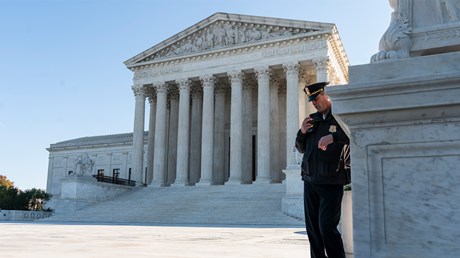Prison officials may limit religious practices at time of death, but only if they show there are no better options.

Update (March 25): The state of Texas isn’t wrong to worry that prayer in the execution chamber might be disruptive or even dangerous, the Supreme Court said in an 8 to 1 ruling on Thursday. But before the state can sharply limit a condemned man’s right to have his pastor lay hands on him and commit his soul to God care, Texas has to show its restrictions are the least restrictive they could be.
John Henry Ramirez, sentenced to die for the brutal stabbing of a convenience store clerk in 2004, has the right to ask that his Southern Baptist minister touch his foot at the time of death and say a few words out loud, the court decided.
“We agree that prisons have compelling interests in both protecting those attending an execution and preventing them from interfering with it,” Chief Justice John Roberts wrote. “Even so, Texas’s categorical ban on religious touch is not the least restrictive means of furthering such interests.”
In the year 2000, Congress passed the Religious Land Use and Institutionalized Persons Act (RLUIPA), which said the government may place a “substantial burden” on the free exercise of religion, but only if it serves a compelling state interest and the rules aren’t any more burdensome than necessary.
That metric for measuring legitimate restrictions has become important in recent court cases. In Burwell v. Hobby Lobby, in 2014, the Supreme Court said the US government had a good reason for wanting women to have access to birth control, but didn’t show that forcing religious employers to provide insurance that covered all forms of birth control was the best way to provide access.
In 2015, in Holt v. Hobbs, the court said an Arkansas prison had ...
from Christianity Today Magazine
Umn ministry


.gif)

.gif)
.gif)
